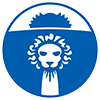Conte, Giorgio
Persona
Grazie alle influenze familiari si appassiona ben presto al jazz degli anni 50 e 60 ed alla grande musica francese. Il sodalizio artistico col fratello Paolo passa attraverso i primi gruppi musicali, che vedono Giorgio alla batteria e Paolo al vibrafono, fino ai contatti con il clan di Celentano e la stesura a quattro mani di brani celebri come "Una giornata al mare", "La topolino amaranto", ecc. Più tardi le loro strade si separano, ma Giorgio continua a firmare canzoni di successo. Negli anni 80 decide di pubblicare i suoi primi album come autore-interprete: "Zona Cesarini" e "L'Erba di San Pietro" lo vedono così protagonista nel panorama italiano della musica d'autore. Accanto al lavoro nello studio legale, si dedica al teatro (tournée con Bruno Gambarotta) e collabora a diversi programmi radiofonici ("Quelli che la radio" su Radio Due Rai, con Giorgio Comaschi).
Poi, nel 1993, la svolta: dopo la partecipazione al Premio Tenco decide di abbandonare l'attività di avvocato per dedicarsi alla carriera artistica. Realizza così in sei anni oltre 400 spettacoli in Germania, Svizzera, Austria, Francia, Belgio, Olanda, Spagna, Canada e Italia. Importante, nel 1996, la sua esibizione nel prestigioso Forum di Montreal, all'interno del Festival della Canzone Francese in cui è stato invitato quale unico autore non francofono. I critici transalpini paragonano Giorgio Conte ai grandi autori della canzone francese, come George Brassens.
In Italia esce nel 1993 Giorgio Conte con "Dischi Ricordi"; nel 1997 la "Polygram/Polydor" ripresenta al pubblico italiano il live "Concerto", un disco che aveva ricevuto numerosi premi e segnalazioni dalla critica europea. Gli appassionati della canzone d'autore italiana cominciano proprio in questi anni a scoprire il più giovane dei Conte, anche per l'originalità delle melodie, lo stile anticonvenzionale, l'umorismo delicato e sornione che ne delinea una sorta di «sostenibile leggerezza dell'essere», l'ironia sottile e la poesia dei testi, l'universo sonoro che sa condensare sapientemente influenze popolari e swing, echi di rive gauche e canzone d'autore.
Alla fine di aprile 1999 Giorgio Conte pubblica "Eccomi qua", che propone un'artista particolarmente maturo, ispirato e frizzante. Al disco è seguito un Tour che ha portato Conte in tutta Italia, in Svizzera, Francia, Germania e Spagna.
Sempre nel 1999 Conte sale sul palcoscenico della prestigiosa rassegna del Club Tenco 1999, ottenendo un grandissimo successo di critica e pubblico. Nel 2000 è ancora al Tenco, poi in tournèe italiana e alla fine di novembre esce l'album, "L'Ambasciatore dei sogni".
Alla fine del 2002, dopo due anni di grande attività concertistica, anche in Centroeuropa, Giorgio Conte affronta il nuovo progetto discografico: "Il Contastorie"; il cd esce insieme ad un libro, una raccolta di racconti brevi, poesie ed aforismi, dove svela, con stile ed ironia, lo stesso universo da sempre messo in canzone.
Born soon developed a passion for '50 and 60's jazz and for the great French music thanks to his family's influence. The artistic partnership with his brother Paolo spans from the first bands in which Giorgio was on the drums and Paolo on the vibraphone to the contacts with Celentano's clan and the four-hand writing of famous pieces such as "Una giornata al mare", "La topolino amaranto", etc. They then went their own respective ways, but Giorgio continued writing successful songs. In the 80's he decided to release his first albums as a singer-songwriter: "Zona Cesarini" and "L'Erba di San Pietromade" him famous within the Italian auteur music panorama. Besides working in his legal office, he devoted himself to theatre (Tour with Bruno Gambarotta) and collaborated in various radio programmes ("Quelli che la radio..." su RadioDue Rai, with Giorgio Comaschi). 1993 was a turning point in his life: after taking part in the Tenco Prize, he decided to give up his career as a lawyer to devote himself to an artistic one. He thus appeared in 400 performances in Germany, Switzerland, Austria, France, Belgium, Holland, Spain, Canada and Italy. His performance at the prestigious Forum de Montreal, within the French Song Festival where he was the only non-French speaking singer-songwriter invited, was noteworthy. The French critics compare Giorgio Conte with the greatest French authors such as George Brassens.
In 1993, in Italy, Giorgio Conte by "Dischi Ricordi" was released; in 1997 "Polygram/Polydor" revived the live "Concerto" to the Italian audience. Such record had previously been awarded a number of Prizes and mentions by the European critics. During these years, Italian auteur-songs fans started to discover the younger of the Contes, for the originality of his melodies, his non conventional style, the subtle and crafty humour give him his distinguishing sort of «unbearable lightness of being», the delicate irony and the poetics of his lyrics, the sound universe that blends in pop and swing influences with rive gauche echoes and auteur songs. At the end of April 1999, Giorgio Conte published "Eccomi qua", where the artist appeared particularly mature, inspired and sparkling. A Tour followed the record, which took Conte all over Italy, Switzerland, France, Germany and Spain.
Again in 1999, Conte appeared on the prestigious stage of Club Tenco 1999 Festival, where he was met with great success both with the critics and the audience. In 2000 he took part in the same Festival again, then he went on a tour in Italy and at the end of November he released his album "L'Ambasciatore dei sogni".
At the end of 2002, after two years of busy concert activity, in Central Europe as well, Giorgio Conte started his new record project: "Il contestorie"; the CD was released together with a book, a collection of short stories, poems and aphorisms where he reveals with style and irony the same universe ever present in his songs.

